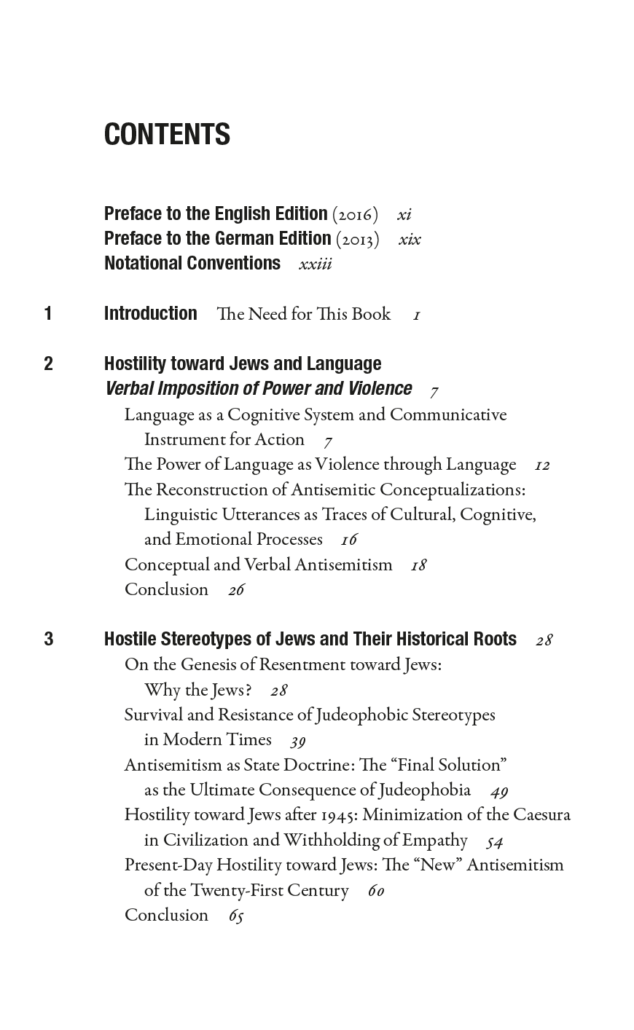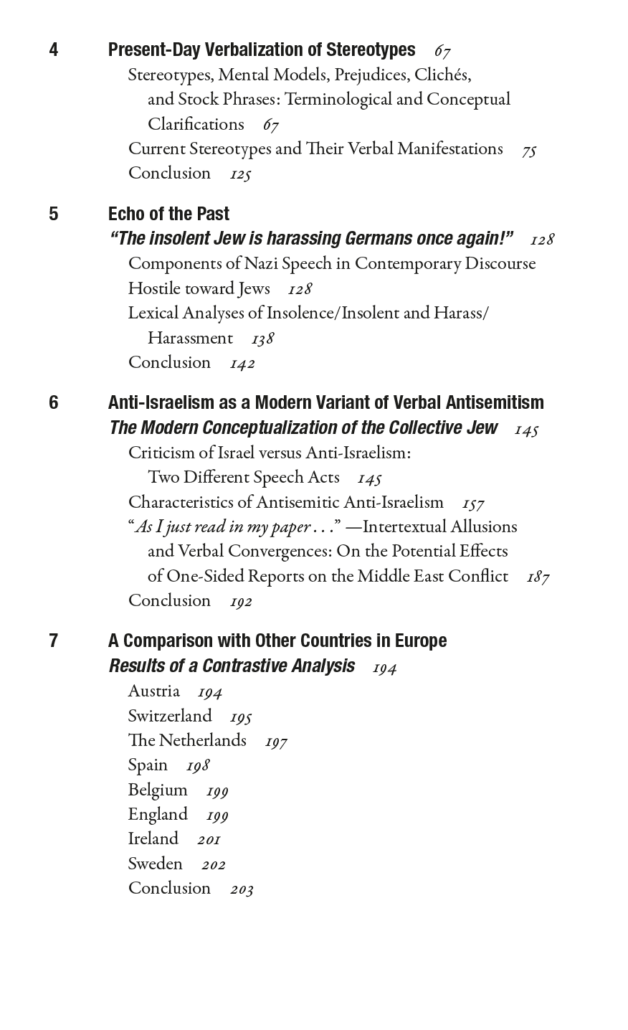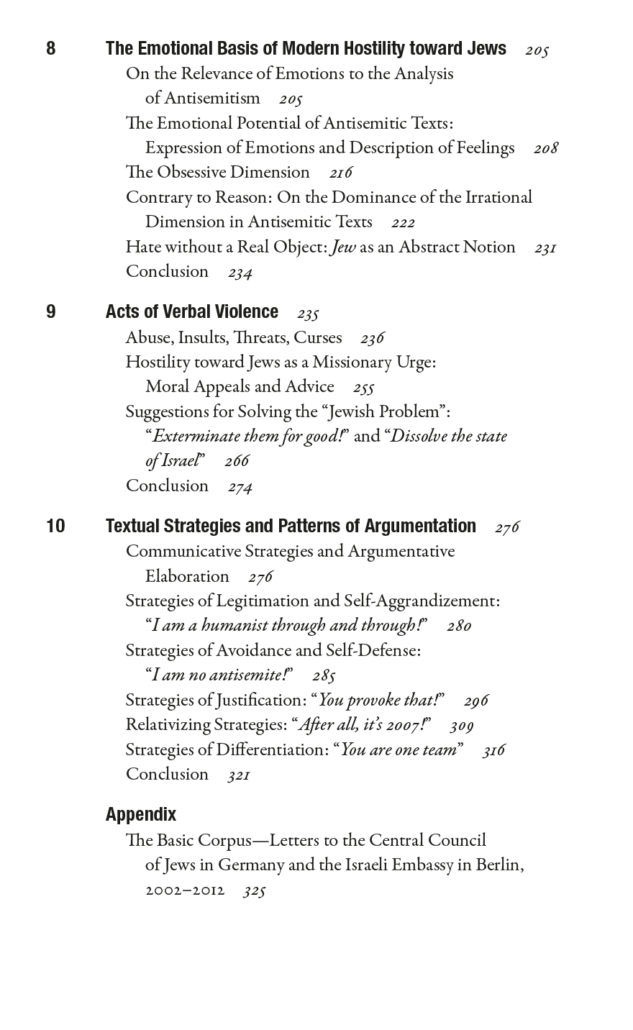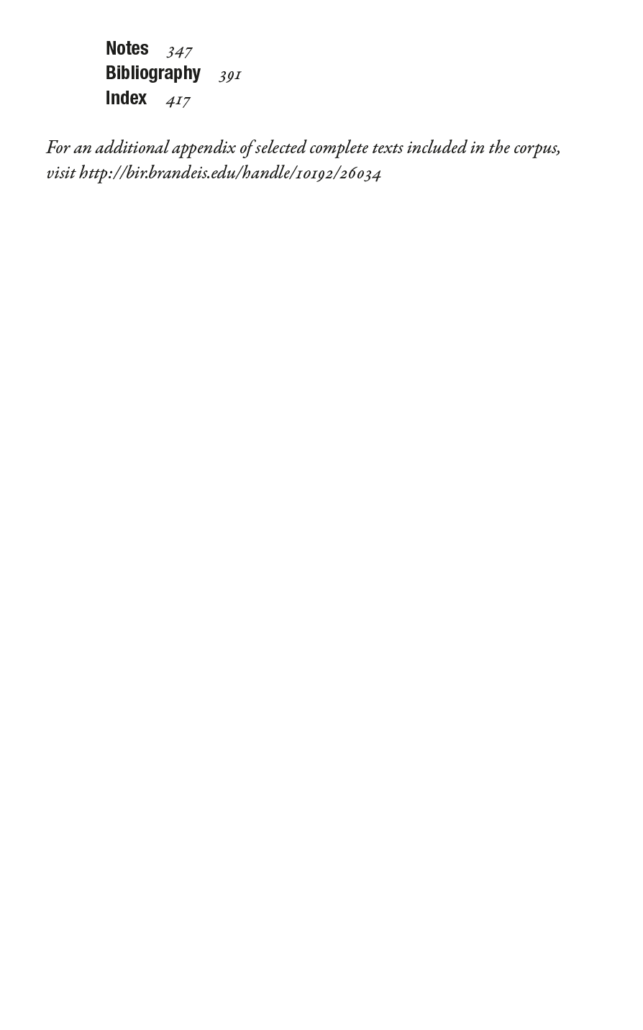Monika Schwarz-Friesel and Jehuda Reinharz’s inquiry into “verbal anti-Semitism” in present-day Germany offers a ... nuanced and disturbing picture: anti-Semitism is at home in the mainstream of German society and politics. ... The strength of the book ... is in its inquiry into the ramifications of antisemitism in today’s Germany.








